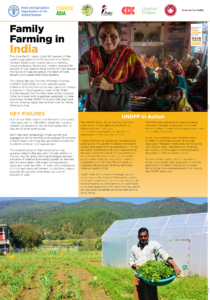Publications

Rural communication services for family farming in Asia and the Pacific: Regional consultation and forum
The Global Action Plan of the UN Decade of Family Farming (UNDFF 2019-28) recognizes the need to promote rural communication…

Rural communication services for family farming in Africa: Regional consultation and forum
The Global Action Plan of the United Nations Decade of Family Farming 2019–2028 (UNDFF) recognizes the need to promote Rural…

Rural communication services: Trends and experiences in Asia and the Pacific
The United Nations Decade of Family Farming (2019–2028) acknowledges the importance of inclusive rural communication services (RCS) to advance the…

Transforming rural Africa: Trends and experiences in rural communication services
The UN Decade of Family Farming (2019-2028) acknowledges the importance of inclusive rural communication services (RCS) to advance economic, environmental…

Rural communication services for family farming: Results of a global forum
The Global Action Plan of the United Nations Decade of Family Farming 2019–2028 (UNDFF) recognizes the need to promote rural…

INDIA Fact Sheet
The Asia-Pacific region holds 60 percent of the world’s population and 70 percent of its family farmers. Small-scale food producers,…
